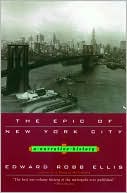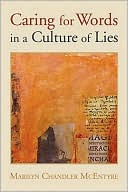I posted an essay on here several months ago about Matthew Arnold and his atheistic worldview in "Dover Beach." Then, I decided to re-write the essay for another class, pitting Arnold's nihilistic philosophy against Gerard Manley Hopkins' Christian one. You can read the original essay
here. Below are several of the paragraphs I added (this is mostly an excuse to ramble over Hopkins and post some of his wonderful poetry):
Unlike Arnold, Hopkins begins his poem “God’s Grandeur” with the line “The world is charged with the grandeur of God” (1), immediately affirming the presence of a Creator. Of this presence he writes, “It will flame out like shining from shook foil” and “it gathers to a greatness” (2-3). Like Arnold, however, Hopkins had also experienced uncertainty and doubt concerning religion. Yet, he overcame this, converting to Catholicism in 1866 and going on to become a Jesuit priest. This sudden conversion made him focus entirely on his Christian vocation. He destroyed all the poems he had previously written and abandoned writing for almost seven years. It was not until after the urging of religious leaders that he decided to embark on poetry once again. It is well that he did, for Hopkins’ writings provide a strong contrast to the nihilistic philosophy of his day, offering the other side of the argument: the argument for a God and His existence in the world.
In “God’s Grandeur,” Hopkins describes poets like Arnold and asks, “Why do men then now not reck his rod?” (4). If there is a god and everyone knows that he exists (even Arnold admitted a knowledge of religion), would it not be in their best interest to obey him? He argues further that men like Arnold are living in a delusion of their own making. “And all is seared with trade; bleared, smeared with toil; / And wears man's smudge and shares man's smell: the soil / Is bare now, nor can foot feel, being shod” (6-8). Yet, man cannot kill God so easily. Even though man may attempt to destroy Him by destroying the nature He has created (many abuses of nature occurred during the Victorian era perhaps as consequences of the Industrial Revolution), “nature is never spent” (9). There is still hope for man because God does exist and “the Holy Ghost over the bent / World broods with warm breast and with ah! bright wings” (13-14).
During his lifetime, Arnold refused to call himself an atheist, hiding in the supposed comforts of agnosticism, believing in neither the existence nor the nonexistence of God. Yet, he rejected religion as superficial, blinding to true reality. “Dover Beach” may, in fact, be his only writing that conceded religion was an answer to chaos in the world: it was deceptive, but it did offer relief and a feigned security. Yet, Arnold insisted on freeing himself from this self-delusion and wallowing in the despair and darkness of the real world. Nevertheless, Hopkins argues that Arnold has actually thrown away reality for the self-delusion. In the Epistle to the Romans in the Bible, Paul wrote that sinful men “suppress the truth in unrighteousness” (Romans, I.18). Further, “they [become] futile in their speculations, and their foolish hearts [are] darkened. Professing to be wise, they [become] fools” (I.21-22). Arnold believed a world of happiness and peace must be a delusion and embraced what he thought was a reality of misery and horror. Indeed, to the unbeliever it is their reality – a “darkling plain” where fools will fight to reject God and hide from the light and truth. It is this light and truth that Hopkins still offers them in “God’s Grandeur.” For “though the last lights off the black West went / Oh, morning, at the brown brink eastward, springs” (“God’s Grandeur”, 13-14).
And here's some of that wonderful poetry I promised. :) Hopkins used a technique called 'sprung rhythm.' The Victorian Web describes it as term for a complex and very technically involved system of metrics which he derived partly from his knowledge of Welsh poetry. It is opposed specifically to "running" or "common" rhythm, and provides for feet of lengths varying from one syllable to four, with either "rising" or "falling" rhythm.
 God's Grandeur
God's GrandeurThe world is charged with the grandeur of God.
It will flame out, like shining from shook foil;
It gathers to a greatness, like the ooze of oil
Crushed. Why do men then now not reck his rod?
Generations have trod, have trod, have trod;
And all is seared with trade; Bleared, smeared with toil;
And wears man's smudge and shares man's smell: the soil
Is bare now, nor can foot feel, being shod.
And for all this, nature is never spent;
There lives the dearest freshness deep down things;
And though the last lights off the black West went
Oh, morning, at the brown brink eastward, springs--
Because the Holy Ghost over the bent
World broods with warm breast and with ah! bright wings.
SpringNothing is so beautiful as Spring—
When weeds, in wheels, shoot long and lovely and lush ;
Thrush’s eggs look little low heavens, and thrush
Through the echoing timber does so rinse and wring
The ear, it strikes like lightnings to hear him sing ;
The glassy peartree leaves and blooms, they brush
The descending blue ; that blue is all in a rush
With richness ; the racing lambs too have fair their fling.
What is all this juice and all this joy ?
A strain of the earth’s sweet being in the beginning
In Eden garden.—Have, get, before it cloy,
Before it cloud, Christ, lord, and sour with sinning,
Innocent mind and Mayday in girl and boy,
Most, O maid’s child, thy choice and worthy the winning.
Pied BeautyGlory be to God for dappled things—
For skies of couple-colour as a brinded cow;
For rose-moles all in stipple upon trout that swim;
Fresh-firecoal chestnut-falls; finches' wings;
Landscape plotted and pieced—fold, fallow, and plough;
And áll trádes, their gear and tackle and trim.
All things counter, original, spare, strange;
Whatever is fickle, freckled (who knows how?)
With swift, slow; sweet, sour; adazzle, dim;
He fathers-forth whose beauty is past change:
Praise him.
Go here for more:
http://www.poetsgraves.co.uk/hopkins.htm
http://www.victorianweb.org/authors/hopkins/gmhov.htmlLabels: bookish musings, poetry
Posted by Nicole Bianchi at 10:24 PM
|



![]()








 This is life seen through the eyes of a writer. A blog that critically examines literature, music, and film. NB, initials which coincidently coinside with the Latin words "nota bene" (mark well), belong to the blog poster, a bibliophile who likes to haunt libraries and book stores, talk about all things bookish, and ramble at any length on things regarding literature. Many of the articles posted here were written as essays for high school and college.
This is life seen through the eyes of a writer. A blog that critically examines literature, music, and film. NB, initials which coincidently coinside with the Latin words "nota bene" (mark well), belong to the blog poster, a bibliophile who likes to haunt libraries and book stores, talk about all things bookish, and ramble at any length on things regarding literature. Many of the articles posted here were written as essays for high school and college.





